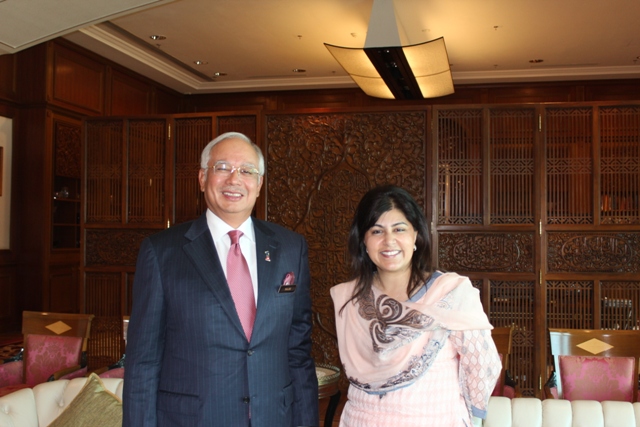I have said before that I wanted to blog for a number of reasons, including showcasing the High Commission’s work to a wider audience.
I also said that I wanted to show that the Foreign Office is representative of diverse, modern Britain and to dispel the myth that there is a glass ceiling in the organisation. I hope that this blog will act as a catalyst for encouraging ethnic minorities to consider a career as a British diplomat.
This matters to me for a number of reasons. Firstly, I believe that Britain’s diversity gives us a huge advantage in our dealings with foreign officials not only through our language abilities but also through our understanding of cultures. I can vividly remember my first meeting with the Ugandan President Yoweri Museveni in which he said that he knew my family from when they were in Uganda in the pre-Idi Amin days and that he considered me to be part Ugandan. He was hugely impressed that the Foreign Office had taken a conscious decision to send me to Uganda and I felt that this connection to the country helped open doors that might otherwise have been closed.
Secondly, I think that in a lot of places around the world, people’s perceptions of the UK come about through their interactions with officials at High Commissions and Embassies whether this is through an entry clearance officer’s response to a visa application or a foreign policy speech delivered by an Ambassador. Contact with Foreign Office diplomats who present a true picture of Britain’s diversity can only be a good thing.
And thirdly, I think it helps to build cohesion within communities in the UK if people can see that there are ethnic minorities who are proud to be British and proud to represent Britain on the global stage.
I’m not saying that we have this problem resolved: the lack of ethnic minorities in the upper echelons of the Civil Service is a clear indication of the challenges that remain. But I do think that we are moving in the right direction and that the coming years will see more and more ethnic minorities representing the UK at the very highest levels.
And, in my opinion, Britain is ahead of most countries in promoting equal opportunities for individuals regardless of race, religion or gender and in supporting the most gifted individuals to rise to the top.
For me, this is best exemplified by someone like the Rt. Hon. Baroness Sayeeda Warsi, who recently visited Malaysia to take forward some of the issues arising from the Prime Minister’s visit. Baroness Warsi, inspired by her father who came to the UK with almost nothing, has risen to the very highest levels to become one of the most senior Muslims in the western world.
I witnessed firsthand her incredible ability to combine Islamic and British values to great effect. For example, when she spoke to Malaysian Prime Minister Najib and others about the Global Movement of Moderates’ ambition to tackle extremism, she did so by drawing on her personal experiences of confronting extremism (sometimes literally) in the UK. I think she struck a chord with everyone in a speech to business leaders when she said that people often characterise the clash between Islam and the West as a clash between “us” and “them”, well, she said, ‘I am “us” and I am “them”’.
I had an opportunity to talk to her about diversity in the margins her visit. She agreed on the importance of the Foreign Office being truly representative of Britain’s diversity and felt that although it might take a generation, it would happen. She also rightly pointed out that there were other strands of society that continue to be under-represented because of socio-economic pressures. On how the process could be sped up, Baroness Warsi stressed the importance of role models who had made it up the ladder and could mentor others lower down.
So, you may be asking what else can be done to encourage ethnic minorities to consider a career in the Civil Service and the Foreign Office specifically. The percentage of ethnic minority applicants to the Civil Service’s Graduate Fast Stream, which includes the Diplomatic Service, has been rising gradually over the last three years to a high of 17.5 % in 2010; however, the percentage recommended for appointment has remained steady at approximately 6.6 %. This is considerably lower than the actual percentage of ethnic minorities in the UK (approximately 9 %).
This suggests two things to me: we need to improve the quality of applications from ethnic minorities; and we have to raise their awareness of what to expect of the application process and of a Civil Service career.
I hope that I can help with the second of these issues and I would encourage anyone who is interested in applying for the Diplomatic Service but is unsure of what to expect to get in touch. You can do so through the comment button below and I will reply privately if you would prefer to keep things confidential. I would also commend the excellent Summer Diversity Internship Programme, which provides an opportunity for ethnic minorities and those from under-represented socio-economic backgrounds to experience the wide-ranging careers that the Civil Service offers.
I look forward to hearing your thoughts.

